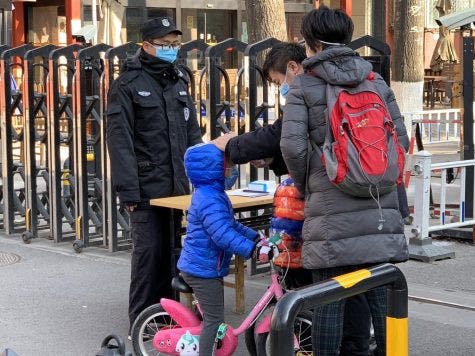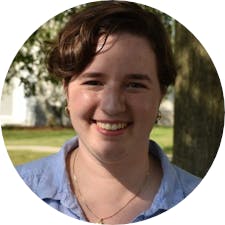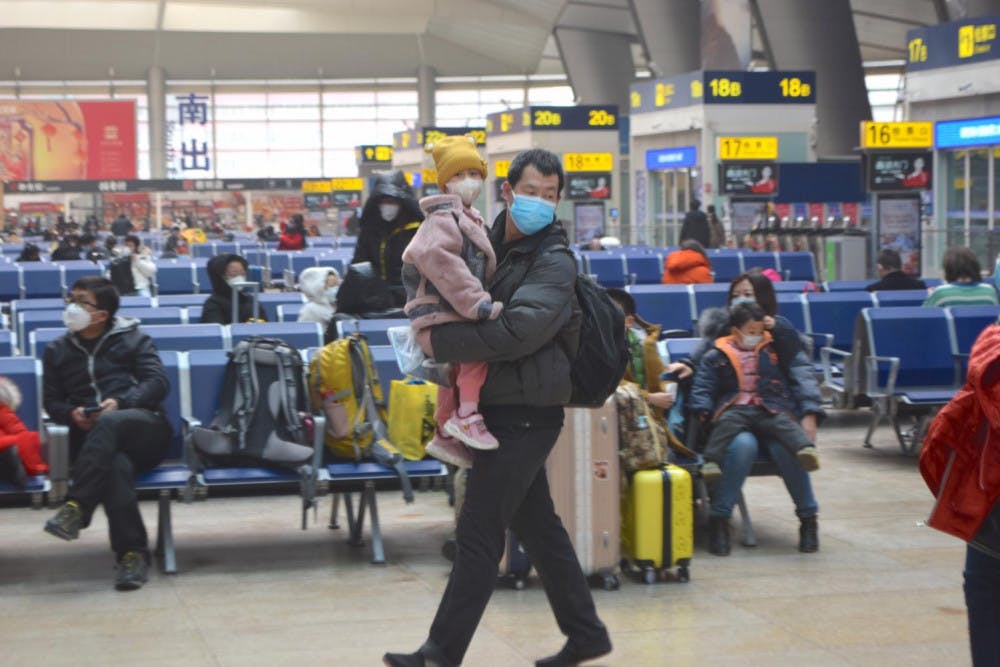ZhiZhong Pu ’24, a Chinese international student who intended to matriculate at Middlebury as part of the class of 2023.5, was barred from starting school this semester due to President Trump’s travel ban.
The ban, intended to prevent the spread of coronavirus, prohibits any foreign nationals, including F-1 student visa holders, from traveling to the U.S. if they have been in China within the last 14 days. Trump issued the executive order that instituted the ban on Jan. 31, and it went into effect on Feb. 2 at 5 p.m. EST.
On Feb. 4, after the ban went into effect, the college told Pu that he would not be able to begin at Middlebury as a February admit this spring, and would have to wait until the fall to matriculate.
As the last Middlebury students studying abroad in China quickly evacuated after the college cancelled the spring semester of the Middlebury C.V. Starr School Abroad in China, Pu remained stuck in the country without access to his passport.
“I’m so frustrated,” Pu said. “I’ve been looking forward to this for so long, and I had everything prepared. To suddenly have this tragic issue, I’ve never felt so bad in my life.”
Pu had intended to visit Montreal before beginning orientation at Middlebury on Feb. 5. He applied for a Candian visa through Visa Facilitation Services Global and submitted his passport to the agency. The company had not processed his request before the Lunar New Year began on Jan. 25.
Although the holiday ended on Feb. 2, many companies, including VFS Global, remain closed to prevent the spread of the virus.
“Technically, if I had paid a huge amount to get here before the deadline, I still could have come. I would have done that, except it was impossible [because VFS Global has my passport],” Pu said.
Once VFS Global reopens and returns Pu’s passport to him, he would still have to travel to a third country and remain in self quarantine for 14 days before coming to the U.S. With a growing number of airlines suspending flights to and from China, even leaving the country could prove difficult.
If Pu received his passport today, he would still miss more than two weeks of classes. According to an email sent to Pu on Feb. 7 by Vice President of Student Affairs and Dean of Students Baishakhi Taylor, an absence that long would exclude him from enrolling at all this spring.
“We are a residential college where our living-learning community requires on-campus residency and participation,” Taylor wrote in the email. “I cannot grant your request to join the spring semester late. Please know that we are looking forward to welcoming you in the Fall.”
“The travel ban itself wasn’t that bad. I anticipated it very early on,” Pu said. “What I didn’t anticipate was the dean of students’ disapproval of me arriving two weeks late given this exceptional situation. I never thought that would be a problem.”
The returning Middlebury school in China students were instructed to self quarantine for 14 after their departure from China in accordance with Trump’s executive order and CDC guidelines. They may participate in the spring semester, though some will miss the first week of classes.
Pu lives in Xinjiang, the easternmost region of the country, more than 2,000 miles away from Wuhan, the epicenter of the outbreak. Despite the distance, Pu said that the disease remains a constant presence in the minds and lives of the residents in his region.

“The situation is very bad, but the sensationalization of fear, that’s even worse than the virus,” said ZhiZhong Pu ’24.
“The situation in China is very depressing. The government is trying to limit people’s interaction and prevent people from going out or traveling across the country,” Pu said.
Pu said he receives constant temperature checks whenever he goes into public. When he visited the VFS office, security checked his temperature upon entering the building and again when he reached the fourth floor. Face masks are mandatory for entering train stations or other public spaces.
Pu spoke to the Campus via Skype on a train from Shanghai to Xinjiang. His face mask, usually carefully secured, was haphazardly hanging on one ear, his face open to the computer camera. As the only passenger in his compartment, he was not worried about the possibility of infection.
“I’ve never seen this in my life,” Pu said. “In China, train stations are always so busy. You can’t even find a seat in normal times, and now, all the seats are empty. I’m literally the only person.”
Pu said he is not afraid of contracting the virus, since he is confident that his youth and good health would protect him from its fatal consequences. However, he finds the atmosphere of tension and fear in China nearly unbearable.
“The situation is very bad, but the sensationalization of fear, that’s even worse than the virus,” Pu said.
[related title="Related Stories" stories="48150" align="center" background="on" border="all" shadow="on"]

Sophia McDermott-Hughes ’23.5 (they/them) is an editor at large.
They previously served as a news editor and senior news writer.
McDermott-Hughes is a joint Arabic and anthropology and Arabic major.
Over the summer, they worked as a general assignment reporter at Morocco World News, the main English-language paper in Morocco.
In the summer of 2021 they reported for statewide digital newspaper VTDigger, focusing on issues relating to migrant workers and immigration.
In 2018 and 2019, McDermott-Hughes worked as a reporter on the Since Parkland Project, a partnership with the Trace and the Miami Herald, which chronicled the lives of the more than 1,200 children killed by gun violence in the United States in the year since the Marjory Stoneman Douglas High School shooting in Florida.




